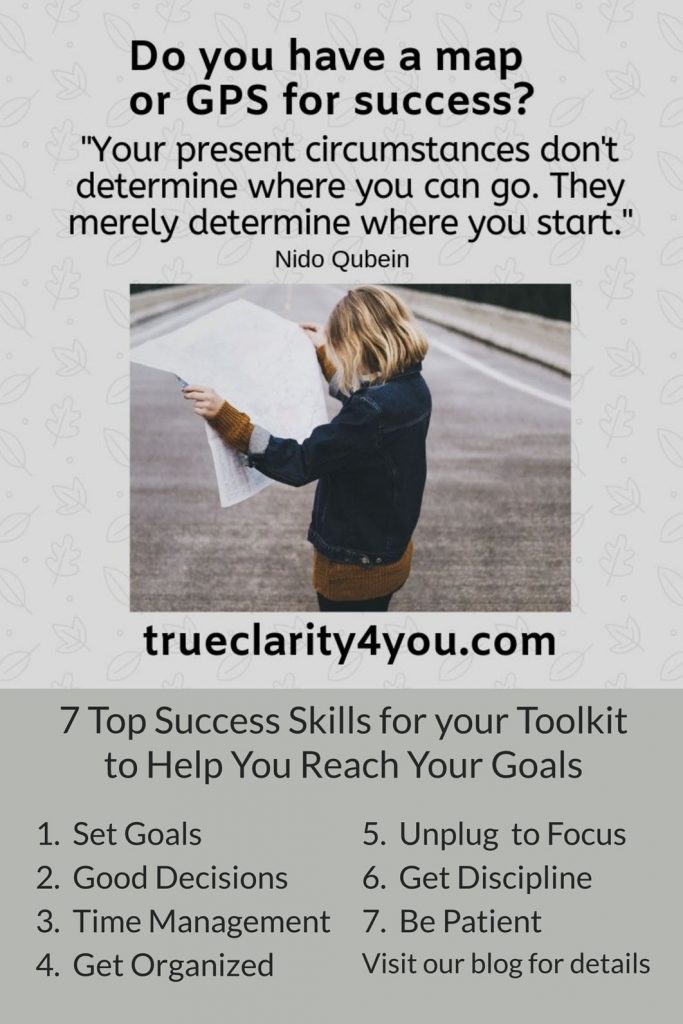Do You Have a Map or GPS for Success?
 Everyone wants to be successful and live a meaningful and fulfilling life without major struggles or stressful survival issues. It is human nature to want to be successful. Each of us defines it differently. There is no right or wrong answer, nor is there an absolute quantifiable measurement. Although, society holds up certain criteria, milestones, and acquisitions through norms and marketing messages as the pinnacle of success. Your internal GPS will guide you.
Everyone wants to be successful and live a meaningful and fulfilling life without major struggles or stressful survival issues. It is human nature to want to be successful. Each of us defines it differently. There is no right or wrong answer, nor is there an absolute quantifiable measurement. Although, society holds up certain criteria, milestones, and acquisitions through norms and marketing messages as the pinnacle of success. Your internal GPS will guide you.
Success will mean something different at different times and areas of your life. Think in terms of work, relationships, and health, for example. As quiet as it is kept, various areas of your life may be working out very well, while at the same time, tensions that foster conflict could simultaneously increase.
For instance, to do well at work and be considered for a promotion, you may have to be willing to put in long hours and bring work home in the evening. The same holds true if you are building your business or pursuing evening college courses. Tensions might make your significant other or your children start to feel neglected.
Even when things are going well, you still must manage your successes. It is essential to define what success means to you and not allow it to overwhelm you. Once you are clear about your values and what is important to you, it is doubtful you will lose focus because you know your long-term goals. Then, no matter what society says or the content of the promoted marketing messages, you will make good decisions for you.
7 Top Success Skills to Help You Reach Your Goals
1. Set Goals – Goals are a tool for your life’s roadmap and compass. Define what will be a success for you and if possible, create a deadline or step-by-step timetable to measure your progress.
2. Decision Making – Choosing the right approach, technique, resource, and support systems are critical to figuring out what to do next. Be flexible and open to change if something is not working.
3. Time Management – Time is our most limited resource. Sorting and prioritizing what aspect will have the most important impact to make things happen in the most efficient time frame is essential.
4. Organization – Assembling any resources, materials, and information you need for your goals will save a great deal of frustration.
5. Focus – Our world is full of distractions. Being able to unplug, tune out, and set up conducive workspace and planning time will help you focus.
6. Discipline – You must work towards your goals regularly. Persistence and frequency are vital motivational factors to accomplishing your desired outcomes.
7. Patience – Success doesn’t happen overnight. Learn to be patient and celebrate small achievements along your journey. You will need to embrace patience.
Here is a handy reminder for your toolkit.

